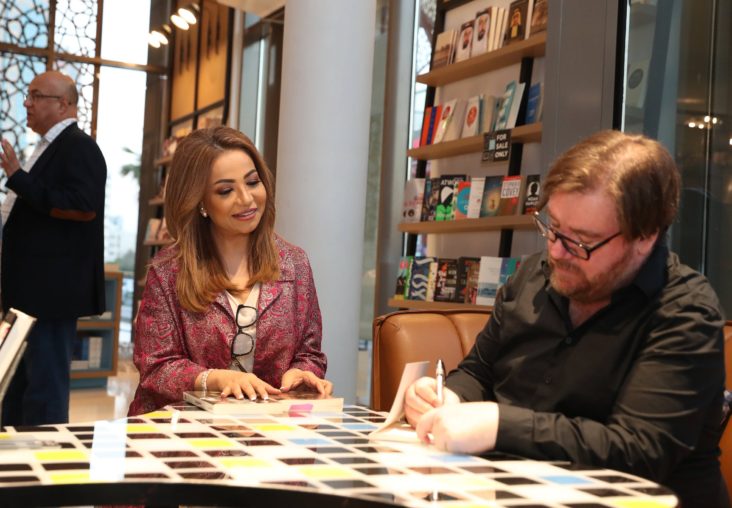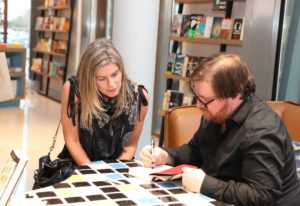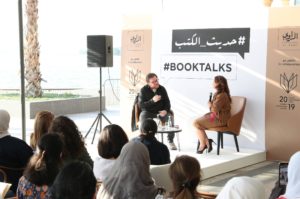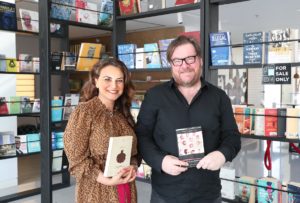Celebrated Iraqi Novelist Sinan Antoon Leads An Insightful Sharjah World Book Capital Discussion

Widely-celebrated author, poet, translator and associate professor at New York University, Sinan Antoon took centre stage at the latest #Book_Talks session held at Al Rawi Café in Sharjah, as part of the Sharjah World Book Capital 2019 celebrations.
In conversation with Mina Al-Oraibi, editor-in-chief of The National, Antoon shared with his audience how he had been deeply scarred and haunted by the war in his native Iraq, and said his fourth and most sophisticated novel, The Book of Collateral Damage, stemmed from a desire to portray the perspective of civilians and their lives that often tend to be erased from historical records.
The novel is an attempt to come to terms with loss and the extent of loss, said the author, who chose to write on ‘the first minute of the war’ in which every second would tell the story of precious or ordinary objects, buildings, animals or plants.
“Once the idea of a novel comes to me, the idea begins to take a life of its own,” said Antoon. “The style of writing is not an easy, linear narrative,” he explained. “This is a book about destruction; and it had to be fractured for I was keen that the structure of the novel should mirror the theme of the book.”
Weaving together two narrative threads from the perspectives of Nameer, a young Iraqi scholar earning his doctorate at Harvard; and Wadood, an eccentric bookseller who has catalogued everything destroyed by war; The Book of Collateral Damage, is a moving testament to the trauma of a nation in the throes of extreme and continued conflict.
“I think of my Iraqi and Arab readers as the front row audience,” said the author, whose book also offers a fascinating picture of culturally significant objects and social traditions that are rooted in the Iraqi way of life. Amongst the many inanimate objects that seem to take a life of its own in the book is a Kashan carpet that once adorned the floors of a happy home. In another instance, he personifies a tree, writing eloquently about the agony and pain it experiences in the process of being struck down.
“In the ancient Arabic poetry traditions, we have examples of many poets who write of objects as if they are alive,” says Antoon. “I use the language of poetry in my novel, because it is rich in figurative vocabulary. The book is a mix of old prose, poetry and narratives of Arabic literature as it was my intention to veer away from the traditional path to be on one that is more innovative.”
Going back to Iraq in 2003 after he left his homeland in 1991 – like Nameer in the story, was a very painful experience, says the author. “I kept reading about Iraq, thought I knew all that was happening, and firmly believed that I was ready to go back. But the shock of seeing the pain and destruction firsthand was deeply distressing.”
“The city was ravaged and people looked drained, tired and exhausted. It was as if time had affected them in a completely different way; they had been run over and crushed under the weight of the war,” he said.
Following the discussion, Antoon signed copies of his books for attendees and continued discussions about his works, and plans.
Organised by Al Rawi Bookstore & Cultural Café in collaboration with the Sharjah World Book Capital Office (SWBC Office), #Book_Talks events are monthly gatherings that aim to promote a culture of reading among community members and help them develop a deeper literary understanding and appreciation through their interactions with prominent Arab writers and authors who are invited to speak at these events.




